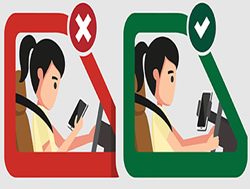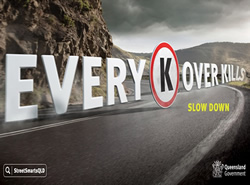 A performance audit into whether Victoria’s regional road barriers program has met its intended safety outcomes has found that while flexible safety barriers save lives and reduce serious injuries, they are not as cost-effective as VicRoads and the Transport Accident Commission (TAC) intended.
A performance audit into whether Victoria’s regional road barriers program has met its intended safety outcomes has found that while flexible safety barriers save lives and reduce serious injuries, they are not as cost-effective as VicRoads and the Transport Accident Commission (TAC) intended.
In his report, Safety on Victoria’s Roads—Regional Road Barriers, Auditor-General Andrew Greaves says his Office undertook a statistical analysis to assess the effectiveness of the road safety treatments that VicRoads (now the Department of Transport) installed through 18 of the 21 completed projects under the Top 20 Program.
“We found that these treatments, which include flexible barriers and other safety measures, have most likely reduced fatalities and serious injuries on the treated sections of road by 46.5 per cent,” Mr Greaves said.
“This result is below the individual crash reduction factors that VicRoads set for 17 of the 18 completed projects,” he said.
“If this result persists, then the projects will not achieve their expected benefits and the Top 20 Program will be less cost-effective than intended.”
Mr Greaves said VicRoads didn’t sufficiently plan its flexible barrier installation projects under the Top 20 program.
“As a result, it is likely to spend at least 22 per cent more installing the barriers than it originally budgeted for,” he said.
“Additionally, it has failed to properly maintain and monitor the barriers it installed, which increases the risk that they will not perform as intended.”
Mr Greaves said VicRoads had not kept adequate records about project start and completion dates, and in some cases, was missing data.
The Auditor-General made eight recommendations to the Department including that it develop business cases for major investments funded by the TAC; develop crash reduction factors, supported by multiple peer reviewed evidence sources; maintain comprehensive records; and develop standards for maintaining flexible barriers.
He also made two recommendations to the TAC: that it require VicRoads to develop a business case before approving funding for major infrastructure projects and develop a reporting framework with VicRoads to establish regular reporting on the Top 20 Program’s benefits and costs.
The Auditor-General’s 77-page report can be accessed at this PS News link.











